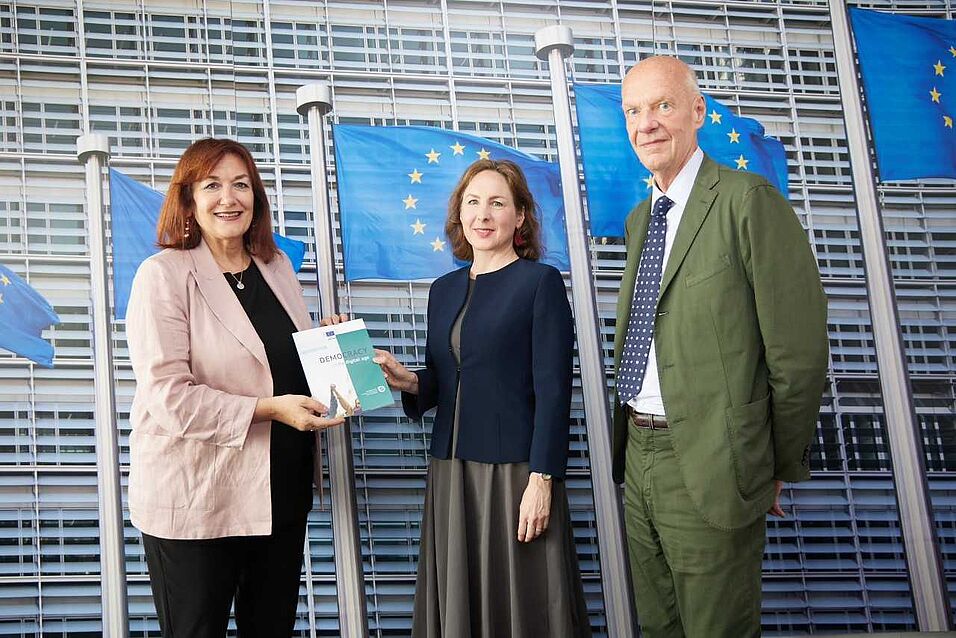Recent years have seen profound challenges to democracy, including grave populist and autocratic shifts. In this context, the EGE was requested by President von der Leyen to provide advice on the matter in the context of the Commission’s efforts to address challenges to democracy and to foster it. The Chairs of EGE Barbara Prainsack and Nils-Eric Sahlin have handed over the Opinion, including its set of recommendations, to Commission Vice-President Dubravka Šuica on June 20.
In the Opinion, the EGE stresses these points:
- Protecting democracy in the digital age requires more than fighting election meddling, more than a narrow focus on technologies, more than a narrow understanding of privacy, while these efforts do of course also remain important.
- It requires us to re-think democracy in deeper ways, and that very process of inclusive deliberation about the meaning of democracy needs to be safeguarded. Democracy can quickly become an empty shell if it is not underpinned by fundamental rights and the values it seeks to protect and promote.
- Beyond the much-discussed dangers around the manipulation of opinion and public debate in the digital space, the EGE warns about the public’s increasing dependency on tech corporations for infrastructure and service provision. Efforts to ensure that socio-technical developments are driven by the interest of society in the common good need to be strengthened.
The main recommendations pertain to the following:
- Stronger support for public participation, civic education, critical digital literacy and inclusive digital citizenship.
- Coherent, impactful regulation for digital practices that serve all; technology design for values and democracy.
- Better support for civil society organisations and for media professionals.
- Publicly funded innovation to benefit the public, and basic needs safeguarded from market rationales.
- EU diplomacy for protecting democracy and voicing civil society’s calls for people and planet.
You can read more about the EGE Opinion here.

